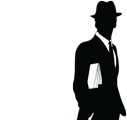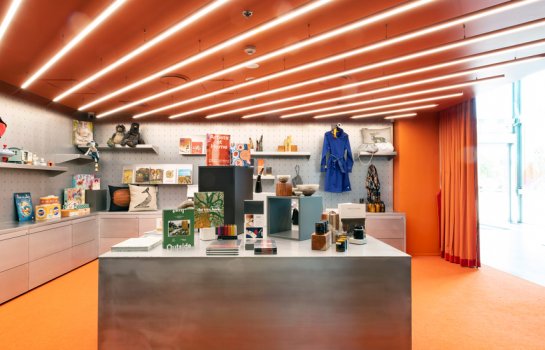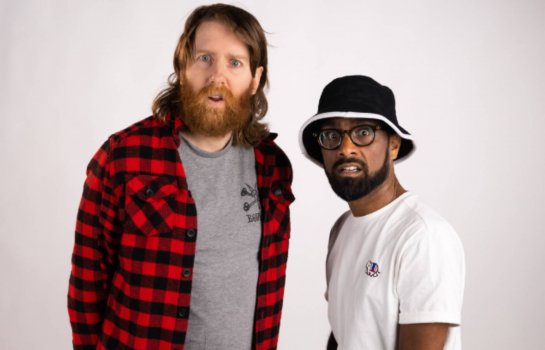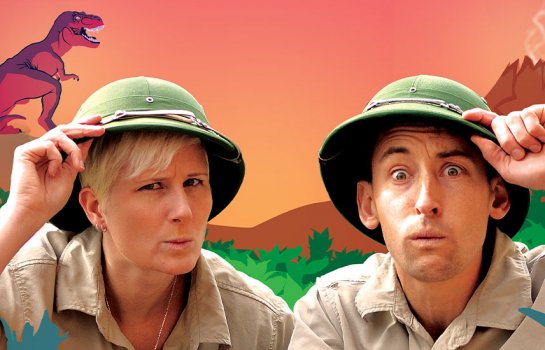Alison St Ledger, festival director, Queensland Cabaret Festival
The storytelling aspect really got to me, as well as the ability to go to more emotional places was really appealing and cabaret really allows for that ...
Cabaret is an art form that has seen exponential growth in the past two decades, slowly emerging from a niche performance style to a full-blown cultural movement. Alison St Ledger has seen the scene in Brisbane bloom since her early days as a young performer through to her work as director of the Queensland Cabaret Festival. Since 2000, the Queensland Cabaret Festival has showcased some of Australia’s best cabaret talent, as well as drawing big names from overseas. The 2016 program features peformances from Molly Ringwald, Harry Shearer and Judith Owen, Carol Lloyd, Queenie van de Zandt, Megan Hilty, Lisa Fischer and Barb Jungr. Ahead of the festival’s commencement in early June, we chatted to Alison St Ledger about the early days of the cabaret scene and what we can expect from the 2016 festival.
Can you tell us a bit about how your love of cabaret started originally?
I started performing way back in the early 90s, I was a guitarist and singer-songwriter. I was doing gigs at clubs like the Story Bridge Hotel. I was performing my own music but also it was quite a hub for a lot of singer-songwriters and bands – that place was a nexus of other performers. I met people like Annie Peterson there who went on to create Women in Voice, which has been a really huge part of my life and career. I think through that performance style that I honed in women in voice I got this love for storytelling – reinterpreting other people’s music as well as performing my own. I got a real love for that style of performance, that intimacy between the audience and the performer. The storytelling aspect really got to me, as well as the ability to go to more emotional places was really appealing and cabaret really allows for that. It certainly wasn’t an intentional thing, it all just happened.
Can you remember your first cabaret performance? How did it go?
I can actually! It was just before I did my first Women in Voice. There was a show I was involved in called Venus vs Madonna – an all-female cabaret. The moment was when I put the guitar down and started singing a Shirley Bassey song called ‘Never Never Never’ and I just wanted to sing like her, really. It was that show in 1993 that was my very first experience with that style of performing. Also, I remember singing a Tom Waits song called ‘Christmas Card from a Hooker in Minneapolis’ and I never realised how funny the song was until I did it in front of a live audience. There was all of this laughter elicited where I hadn’t expected it. Getting that immediate reaction was really satisfying. It all took off from there.
I understand you’ve been involved in the Queensland Cabaret Festival from the beginning. How did it all start?
Around the year 2000, through Women in Voice I met a bunch of people who were doing Blokes in Voice as a counter to that – giving the blokes in cabaret a go. Not long after the guys who organised Blokes in Voice got in touch and said lets join forces and create an annual cabaret festival so that the boys and the girls can have some fun with cabaret. It’s great that I am still associated with this festival 16 years later.
Going back to 2000 when the festival first started, how did you go about showcasing the best of what was out there? How was the program pieced together in the early days?
I think because we were surrounded by a lot of great performers we looked at people that we knew that were doing interesting things. It was easier in those days because it was a burgeoning art form and so there weren’t a great deal of people approaching it. However there were fantastic exponents of it around – so many great performers so we got together as a group put an ensemble together and did a show called the A to Z of Cabaret. That was our way of saying “This is what we think.” It was a look at a lot of history, starting back in England in the Cromwellian era, when a lot of theatres were shut down so people started performing in pubs. We offered the idea that cabaret has its beginnings and that performance style still, but bringing it to a contemporary realm. We started by defining it and figuring out what we could put in offer an audience. A lot of the performers we had that year were performers we had worked with before. We were prepared to put ourselves out there and define it or redefine it. We invited Angela Toohey to come along who we knew from being in Boy From Oz playing Liza Minelli and Tyrone Noonan – someone from the rock scene. He was one of the first people we worked with and he has continued to be a part of the festival over the years because he really gets it.
As someone that has been in the scene for some time, what can you tell me about how the scene has grown within Brisbane over the past 20 years? Are you noticing more people appreciating the art form these days?
Oh, absolutely! When we started QCF in 2000 the main question I was asked was “What is cabaret?” I remember talking to Robert Forster and he asked what I did, and when I told him I worked in cabaret he said “Oh, is that like doing Top-40 in the RSL?” (laughs) I had to tell him “Not really.” Hearing things like that made me determined to define it and help to grow the genre and take the daggy element out of it. Some people still believe that there are some elements that are cheesy but I prefer to look at it from the point of view of where it came from, which was the more European form of cabaret. It’s a lot more political and a lot more contemporary as in speaking to the times that it is performed in. I was very keen to make sure that we defined it and make it kind of cool again. I can look back now after this many years, people know what the genre is now and there are so many more young people coming through. At QCF there is a category for cabaret in competitions and there are so many young people coming out of the Conservatorium doing it. It’s a really popular art form now in Brisbane and Australia as a whole.
You’ve got some great acts booked for the 2016 festival this year, how did you go about putting together that line-up?
We are lucky now because we can work with QPAC and the Powerhouse and a lot of people keep their ears to the ground about what’s coming out. Also, what has happened over the last five years or so is that the Adelaide Cabaret Festival and the Melbourne Cabaret Festival are on around about the same time as us. People can come from the US or the UK and do a circuit now. It’s the same with the comedy festivals. Now we have a cabaret circuit in Australia and that’s made these international acts much more accessible, we can share acts and entice people to come over to do more shows. That’s been really advantageous. We get a lot of submissions too, it’s a two part process. It’s very curatorial – we look at who is performing currently, who has new shows and who wants to tour. We also put out calls for submissions and we have some really high quality stuff coming through. Then it comes to the difficult decision of how many can we fit in and what’s going to talk to the public. It’s a bit of everything. I tried to get a balance where males and females are properly represented, old and young people are properly represented. There are so many aspects to cabaret so it’s nice to be able to get a balance. It’s not all musical theatre, it’s not all European stuff, it’s not all comedy or tragedy – there’s a balance.
What are some shows that you think are must-see at the festival this year?
I suppose I’d try to define what cabaret is quintessentially, so I’d have to say that it would be a toss up between two shows. The first is Barb Jungr’s show Hard Rain. She’s from the UK and she is doing songs from Bob Dylan and Leonard Cohen. To me that displays what contemporary cabaret is about – a singer who is masterful at interpreting other people’s songs in a way that you hear it fresh. Suddenly the words mean something else to what they previously did when you first heard them on the radio. I think that Harry Shearer and Judith Owen’s show is the other – at the other end of the spectrum of cabaret. They write their own songs and they are doing their own material about their own lives – they are both funny and poignant and that, to me, is real cabaret as well. They are telling stories through songs and talking about all sorts of existential things – life and love – in a way that is entertaining and enthralling.
What are you finding inspiring these days?
I’ve been doing a bit of work with young people through Ripe and Ready, which is mentoring performers in their late teens and early twenties through their first shows. That’s work that I find inspiring above anything else – working with younger people, seeing what their ideas are and helping to find that spark that leads them to more opportunities – I find that very inspiring.
The Queensland Cabaret Festival kicks off at the Brisbane Powerhouse and QPAC from June 3–12. Head to the Queensland Cabaret Festival website to check out the program and find ticketing information.





